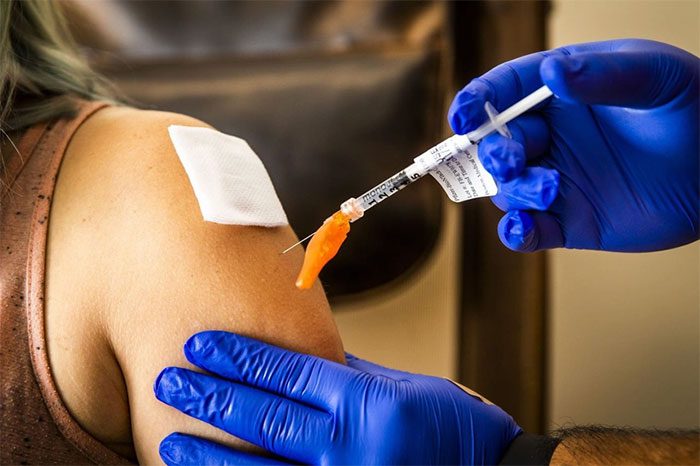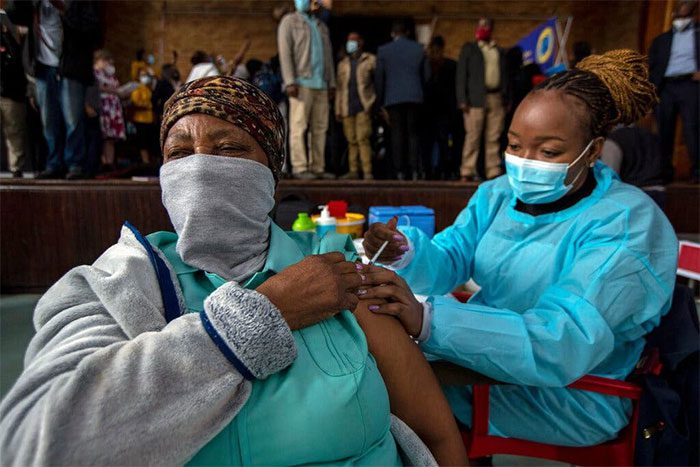A broad-spectrum vaccine capable of combating multiple types of coronaviruses will provide a ready “weapon” to counter new threats such as the Omicron variant.
When Covid-19 began to spread in early 2020, one of the first ideas from virologist Linfa Wang was to test the blood of individuals who had survived previous coronavirus outbreaks.
The expert, who works at Duke-NUS Medical School, has studied bat-transmitted viruses for decades. His new theory suggested that people who had recovered from SARS-CoV-1 might harbor antibodies that could help combat the new SARS-CoV-2 virus.
Initially, the tests were unsuccessful. The patients Wang examined only had antibodies against the older version of SARS.
However, as several variants of the virus began to spread earlier this year, he decided to test again. The results astonished him. After vaccination, patients who had previously been infected with the SARS virus appeared to have developed super antibodies effective against all SARS viruses and numerous other coronaviruses.
In fact, the experiment showed that all 8 patients had antibodies that could neutralize five strains of coronaviruses that had never infected humans, which were found in bats and pangolins. The results, published in the New England Journal of Medicine in August, provided the strongest evidence yet for the potential development of broad-spectrum vaccines, according to Bloomberg.
A Vaccine Against Multiple Coronaviruses
In a laboratory on the 13th floor, a few kilometers from Singapore’s shopping district, Wang is researching a prototype vaccine that could elicit the broad immune response he observed in survivors who had contracted the SARS virus and received vaccination.
His regimen combines a first shot containing the spike protein from the Covid-19 virus and a second shot containing a hybrid protein from SARS. If successful, Wang indicated that they could become a promising vaccine to be deployed in the event the world faces a new SARS-CoV-3 virus.

Healthcare workers receiving the Covid-19 vaccine in Boston, Massachusetts, USA. (Photo: Bloomberg).
“We want to develop something that can provide broad protection so that when faced with the next zoonotic virus, we already have a vaccine ready at hand,” said Melanie Saville, head of vaccine research and development at the Coalition for Epidemic Preparedness Innovations (CEPI).
A broad-spectrum vaccine capable of combating multiple viruses will provide a ready “weapon” against threats such as Omicron, which is the most mutated variant discovered to date.
“After Delta, many new variants will emerge until we run out of letters in the Greek alphabet,” stated Drew Weissman, a researcher at the University of Pennsylvania.
In just 20 years, the world has witnessed three pandemics caused by coronaviruses: first SARS, then MERS in 2012, and now Covid-19.
According to Anthony Fauci, Director of the U.S. National Institute of Allergy and Infectious Diseases, with many coronaviruses still lurking in nature, there is reason to believe that future outbreaks “could even be worse than what we are experiencing now.”
“Instead of waiting to respond to the next outbreak, it is crucial to develop a vaccine that can protect against all coronaviruses,” he stated.
In September, Fauci’s agency announced a $36.3 million funding grant for broad-spectrum coronavirus vaccine research by scientists at Harvard, Duke, and the University of Wisconsin.
Such vaccines would not only be effective against the “relatives” of SARS-CoV-2 but also against a wide array of other coronaviruses, including those causing the common cold.
The Race for Vaccine Research and Development
Stephane Bancel, CEO of Moderna, called this vaccine “a good idea.” However, he warned that previously, scientists had also researched universal flu vaccines for years without breakthroughs.
Nevertheless, Covid-19 vaccines utilize advanced technology that surpasses most flu shots. For instance, mRNA technology allows researchers to easily combine shots against multiple variants into a single vaccine.

mRNA technology allows for the combination of shots against multiple variants into a single vaccine. (Photo: Bloomberg).
Earlier this year, virologist David Martinez at the University of North Carolina and colleagues made significant progress in improving mRNA vaccines against multiple coronaviruses by teaching cells to produce hybrid spike proteins. These proteins combine to create fragments containing genetic codes from various coronaviruses, thus generating a broad immune response.
Currently, researchers at the University of North Carolina are testing a vaccine containing 1/3 of the spike protein from SARS, 1/3 from the original Covid-19 strain, and 1/3 from a bat coronavirus known as HKU3-1.
mRNA vaccines typically target the receptor-binding region of the spike protein. However, this part evolves rapidly, so many scientists are trying to shift focus to more conserved regions of the protein that are less prone to change across different viruses.
mRNA shots can also be updated more rapidly than the technologies used for flu vaccinations. However, in the long term, there remains a risk that delays in updating and adjusting vaccines could leave people vulnerable. Variants of coronaviruses are spreading rapidly across the globe and seem to have some ability to evade vaccine antibodies, even though overall protective efficacy remains strong.
Meanwhile, Pamela Bjorkman, a structural biologist at the California Institute of Technology, is exploring a different approach. She, along with researchers at Oxford, is testing a broad-spectrum vaccine using spherical nanoparticles that combine harmless spike protein fragments from 8 coronaviruses.
Because this method allows for the placement of spike protein fragments from various coronaviruses on a single nanoparticle, theoretically, they could trigger immune cells to produce cross-reactive antibodies capable of neutralizing multiple similar viruses.
Additionally, some researchers are also working to stimulate other aspects of the immune response. Gritstone Bio Inc., a biotechnology company based near San Francisco, is focusing on vaccines that bolster the primary line of defense in the immune system against viruses. This involves T cells, which can identify and destroy virus-infected cells.
Accordingly, Gritstone is testing a vaccine using mRNA technology to teach cells to produce spike proteins from the virus, similar to existing vaccines, but also adding a second viral protein, nucleocapsid, which is a target for T cells.

Covid-19 vaccinations in Katlehong, South Africa, October 2021. (Photo: AP).
However, according to Bloomberg, in the long run, the most challenging aspect of developing a broad-spectrum vaccine may be economic rather than scientific. Commercial interests may hinder the development and production of such vaccines.
Major companies like Moderna and Pfizer are expected to earn tens of billions of dollars this year from booster shots. If new variants like Omicron continue to emerge, these companies will continue to profit by tweaking existing products and producing the fourth, fifth, and even sixth shots. This could reduce their motivation to prioritize the development of a vaccine that prevents all types of coronaviruses.
Nonetheless, Wang remains optimistic that governments, NGOs, and companies will see the wisdom in investing. He plans to continue spending months or years in his Singapore laboratory refining his vaccine candidate.
If he makes progress in animal trials, he hopes to secure additional funding to move the vaccine into human trials and production.
“Before Covid-19, that was unimaginable,” Wang said. “The world has changed. This is what is called a preemptive step in vaccine development.”

















































